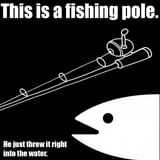>>17848774 (OP)
That’s an excellent question—and a mature way to approach history. Most people pick up distorted, biased, or shallow views from school or media and never go deeper. Here's a structured approach to build a strong, nuanced historical knowledge base while avoiding common traps like oversimplification, presentism, or ideological distortion.
---
STEP 1: Understand What History Is
Before you study events, understand the nature of history.
Foundational Meta-History Books:
E.H. Carr – What Is History?
Introduces historical method, bias, and interpretation. A short classic.
Marc Bloch – The Historian’s Craft
Written by a medievalist and member of the French Resistance—on how history is made and understood.
John Lewis Gaddis – The Landscape of History
Great for modern readers. Shows how historians think, and how historical knowledge is structured.
These prevent you from mistaking raw facts for history—they also show you how interpretation, narrative, and selection play a role.
---
STEP 2: Build a Broad Survey Knowledge
These give you the basic skeleton to hang everything else on.
Recommended General Surveys:
A Short History of Nearly Everything by Bill Bryson (lighter but engaging)
J.M. Roberts – The Penguin History of the World (dense but balanced)
Susan Wise Bauer – The History of the Ancient World / Medieval World / Renaissance World
A more narrative approach, often recommended for autodidacts.
Paul Johnson – Modern Times (covers 20th century with strong perspective—good to read critically)
Aim to move from prehistory classical medieval modern. Don’t rush. Skimming and returning later is fine.

